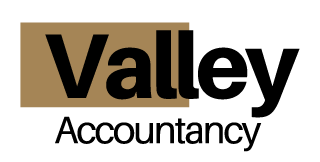Introduction
In the United Kingdom, the term “accountant” is one that carries a certain level of prestige however, what comes as a surprise to many is that the title “accountant” itself is unregulated. While the accounting profession is undoubtedly one of the most heavily regulated industries in the UK, the absence of regulation surrounding the title “accountant” raises important questions about the qualifications and expertise of those who carry this designation. In many cases, the answer is no qualifications or experience at all.
Approximately 1/3 of practicing accountants in the UK today, are not members of a professional body. Anyone is legally allowed, to open an office, register as an agent, call themselves a practicing accountant and start giving advice and completing tax returns with no qualifications or experience.
The Regulated Profession
Accounting is a critical component of the UK’s financial landscape, ensuring the integrity of financial data and providing invaluable support to businesses and individuals. The accounting industry is governed by various regulatory bodies, with the most prominent being the Financial Reporting Council (FRC). The FRC sets accounting standards and oversees the regulation of audit and corporate governance in the UK. Additionally, professional accounting bodies like the Association of Chartered Certified Accountants (ACCA), the Institute of Chartered Accountants in England and Wales (ICAEW), and the Chartered Institute of Management Accountants (CIMA) provide rigorous training, qualifications, and ethical standards for accountants.
The Unregulated Accountant or Practice
Despite the extensive regulation of the accounting profession, the title “accountant” itself remains unregulated. This means that anyone, regardless of their qualifications or experience, can legally call themselves an accountant in the UK. This situation creates a significant challenge for those seeking professional accounting services, as there is no formal safeguard to ensure that individuals who present themselves as accountants are adequately qualified or competent.
Implications of Unregulated Accountants or Practices
The absence of regulation surrounding the title “accountant” can have various implications:
- Potential for Incompetence: Without a regulatory framework governing who can use the title “accountant,” there is a risk that individuals with inadequate knowledge or experience may offer accounting services, potentially resulting in subpar financial advice or even financial mismanagement.
- Damage to the Profession: The unregulated use of the term “accountant” can tarnish the reputation of the accounting profession as a whole. It can create confusion and undermine the trust that individuals and businesses have in professional accountants.
- Consumer Vulnerability: Individuals and businesses seeking accounting services may struggle to differentiate between qualified professionals and those who are not. This can leave them vulnerable to making poor choices when selecting an accountant.
- No Insurance: Practices who are members of professional bodies are required to hold professional indemnity insurance. Unregulated practices have no such requirement and there may be no recourse for damaging advice.
- Lacking complaints procedure: No complaints process exists for unregulated practices beyond informing HMRC.
- Changing landscape: Accountants who hold professional designations are required to carry out continued professional development (CPD), this ensures that individuals are keeping up to date with changes in tax and accounting standards and continually developing their knowledge
Addressing the Issue
To address the challenges posed by the unregulated use of the title “accountant,” there are several potential solutions:
- Introduce Title Protection: The UK could consider introducing title protection legislation that restricts the use of the title “accountant” to individuals who meet specific professional qualifications and standards. YouGov recently surveyed MPs and 82% voted in favour of such legislation while only 2% voted against.
- Promote Accreditation: Encourage individuals and businesses to seek out accountants who are members of recognized professional accounting bodies such as ACCA, ICAEW, or CIMA, as these organizations maintain high standards of qualification and ethical conduct.
- Raise Awareness: Public awareness campaigns can help educate individuals and businesses about the importance of verifying an accountant’s qualifications and professional affiliations.
Conclusion
The unregulated title “accountant” in the UK is a notable anomaly in an otherwise heavily regulated industry. While the accounting profession is held to high standards of qualification, ethics, and conduct, the absence of regulation surrounding the use of the term “accountant” can pose risks to individuals and businesses seeking professional financial advice. Addressing this issue may require a combination of legal changes, increased awareness, and a commitment to upholding the reputation of the accounting profession, ensuring that those who seek the services of accountants can do so with confidence in their expertise and integrity.
